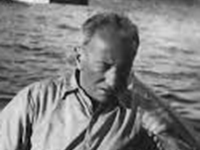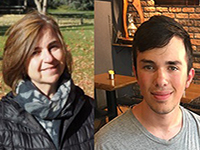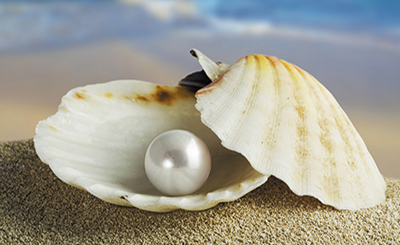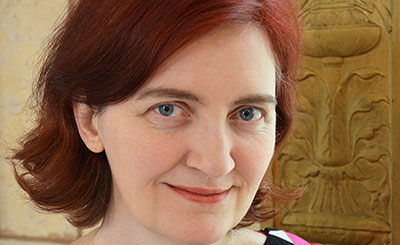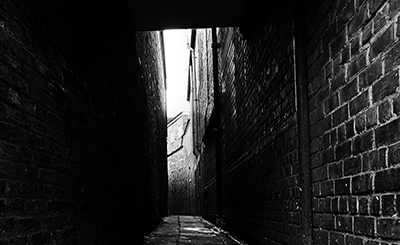
This poem is part of our world poetry special issue, with the focus on Turkey, curated by Ceyda Elgül, an instructor of translation at the Department of Translation and Interpreting Studies in Istanbul’s BoÄŸaziçi University
Editor's note: “No man is an island entire of itself/every man is a piece of the continent, a part of the main...” wrote John Donne, whose death anniversary falls on March 31. However, amid the shared threat of a global pandemic, as we practise social distancing and seek refuge in the self, we may see ourselves as islands unto ourselves, rafting along the sea of life. As reports of people dying of coronavirus around the world come in, all of us at The Punch Magazine feel diminished as we are “involved in mankind”.
COVID-19 destroys lives, but as human race, we have always created what is greater than us — literature. It’s a dark and difficult period in the march of human civilisation. But this is also the time that will produce the best of literature. “What one writer can make in the solitude of one room is something no power can easily destroy,” Salman Rushdie once said. Poets and writers throughout history have always shaped the world, and stopped it from “going to sleep”. Someday, when all this is over, the world may not be the same, and we may have lost millions of our loved ones to the contagion, but, by then, poets and writers who are witness to this moment in history will have created life-affirming literature that will outlive us. We do hope that this phase proves to be just a “short sleep” and that we may soon “wake eternally” and emerge into the light — stronger and well-healed.
This poem is part of our world poetry special issue, with a focus on Turkey, curated by Ceyda Elgül, an instructor of translation at the Department of Translation and Interpreting Studies, BoÄŸaziçi University, in Bebek (Istanbul). It presents a selection of poems translated during a workshop in Turkey last year.
Curator’s Note: Poetry is generally associated with untranslatability. Poets are assumed to deconstruct and refashion the language, which eventually puts it in a state that cannot be replicated in another language. This portrayal would seemingly suggest that poems are “islands” that have no contact with “other shores”.
In July 2019, a group of professional poets, translators, and scholars from different linguistic and cultural backgrounds gathered at Büyükada, the largest of the nine “Princes’ Islands” in the Sea of Marmara, near Istanbul, to start a series of poetry translation workshops entitled “Island in Translation”. The gathering aimed to celebrate poetry translation as collaborative-creative production. A selection of island poets and/or poems with island themes was translated. The poets and the poems came from the Princes’ Islands (Istanbul), Cyprus, the Caribbean, and the Isle of Man. During the two-day workshop, the gathering delved into island literature from the viewpoint of translation and proposed corresponding images for island-poems in other languages, including English, Turkish, Korean, Kurdish, and Japanese. Metaphorically speaking, the group explored how “island-poems” and “other-shores” could be brought together.
Besides this poem by Sait Faik Abasıyanık, one of the major short story writers in Turkish literature in the 20th century (translated by Åžehnaz Tahir GürçaÄŸlar and Ä°ldar Gün GürçaÄŸlar), other translations include poems by late Caribbean poet, playwright and theatre director Derek Walcott (translated by Özlem Berk Albachten); Turkish poet-essayist-novelist Enis Batur (translated by Saliha Paker); Turkish writer-stage director-theatre critic Melisa Gürpınar (translated by Ceyda Elgül); Isle of Man-based English teacher Usha Kishore (translated by Seyhan Bozkurt Jobanputra and Rakesh Jobanputra); Özdemir Asaf, an eminent figure of contemporary Turkish Literature (translated by Seyhan Bozkurt Jobanputra and Rakesh Jobanputra); American poet Mel Kenne (translated by Mark David Wyers, Ä°dil KaracadaÄŸ and Gökçenur Ç.), another Turkish poet Haydar Ergülen (translated by Mark David Wyers and Ä°dil KaracadaÄŸ); Turkish poet-actor-visual artist Erkut Tokman (translated by Mark David Wyers and Ceyda Elgül); Turkish-Cypriot poet Mehmet Yaşın (translated by Bilal Çelik and BaÅŸak Ergil); Turkish poet Muzaffer Tayyip Uslu (translated by Muazzez Uslu); and Turkish poets Efe Duyan, Nihat Özdal and ÇaÄŸla Meknuze (translated by Gökçenur ÇelebioÄŸlu). In respect of the long tradition of poetry translation, the translations are presented along with the source poems so as to enable parallel reading.
An Afternoon Nap in the Countryside
My hat, the handkerchief I use to wipe my hands, and my novel in a
notebook
and my black sunglasses are
atop a table in a countryside coffeehouse.
My little puppy under the table,
Pine trees
And Joachim’s paper whirligig.
It’s hot.
A razor blade on the table
and two pine needles,
the band of my hat.
Barba Iorgi squats down at the threshold,
waiting for someone other than me,
to talk about Erzurum which he hasn’t seen in forty years.
And a whisper of love rises
From the Twins,
the intertwined pine trees; my eyes close.
I should think of you here my love,
Remember that one night we sat
on the windy side of the second class
as there was no one there.
This was a last ferry.
The stars after us,
The stars behind us, ahead of us.
I held your hand.
Your nails like a mirror,
The mirror of my happiness,
I blew into your hands,
And licked them.
I heard,
The stars suddenly calling out.
As the propeller churned the water,
The ticket seller’s puncher clicked,
The first class and the men watched news of war
quietly,
In the strange and sleepy mood of the water.
My beautiful child,
Remembering my dreams on your nails,
and your warm head,
the leaves of your palms,
your neck line
and the white life of your teeth,
Here,
As little Joachim’s paper whirligig turns
Against the breeze
and imagining you’re by my side again
the reflection of my happiness on the mirror
of your nails,
My future...
The wind turns a page from my novel,
Sadık Aga, the denizen of the pines,
His dog behind him,
Returns from the monastery.
I can smell the delicious coffee
the Madam has made.
A winged ant, bare, before me,
My dog fidgets,
A bird chirrups.
I want to sleep,
But a cannon roars in Sevastopol.
A lake evening envelops me.
If only I could sleep,
And find myself on the last ferry…
The stars,
The propeller pursue us,
If only I could sleep…
Sait Faik, “Kırda Bir ÖÄŸle Uykusu”, Åžimdi SeviÅŸme Vakti, Bütün Eserleri 13, Bilgi Yayınevi, 2000.
Kırda Bir ÖÄŸle Uykusu
Åžapkam, elimi sildiÄŸim mendil, defterde
romanım
Ve siyah güneÅŸ gözlüklerim,
Bir kır masasının üstündedir.
Masanın altında küçük köpekçiÄŸim,
Çam aÄŸaçları
Ve Yuvakim’in kağıttan fırıldağı.
Sıcak.
Masada bir jilet
Ve iki çam dikeni,
Şapkamın kurdelesi.
Barba Yorgi eÅŸikte çömelmiÅŸtir,
Kırk senedir görmediÄŸi bir Erzurum’u
Anlatmak için
Benden başkasını bekliyor.
Ve Çifte KardeÅŸler
Ä°smindeki birbirine bitiÅŸik çam aÄŸacından
Bir aÅŸk fısıltısı; gözlerim kapanıyor.
Seni burada düÅŸünmeliyim sevgilim,
Hani bir akÅŸam ikinci mevkiin rüzgarlı
tarafına kimseler olmadığı için
yerleÅŸiyorduk.
Bu, bir son vapurdu.
Yıldızlar peşimizde,
Yıldızlar gerimizde, ilerimizdeydi.
Elini tutardım.
Tırnakların bir ayna gibi,
Saadetimin aynası gibi,
Hoh, der, üfler,
Sonra yalanır.
Ä°ÅŸitirdim,
Yıldızların birdenbire seslendiğini.
Uskur suyu döverken,
Biletçinin zımbası iÅŸler,
Birinci mevki ve adamlar harp havadislerini
sükun içinde,
Suyun garip, uykulu havasında
Seyrederlerdi.
Benim güzel çocuÄŸum,
Tırnaklarındaki rüyamı
Ve sıcak başını,
Avuçlarının yaprağını,
Boynunun çizgisini
Ve diÅŸlerinin beyaz ömrünü,
Burada,
Küçük Yuvakim’in kağıttan fırıldağı
Melteme karşı dönerken
Hatırlamak
Ve seni yanımda zannedip tekrardan
tırnaklarının
Aynasında ömrümün saadet çehresini,
Ä°stikbalimi…
Rüzgar, romanımdan bir yaprak çeviriyor,
Çamların bekçisi Sadık AÄŸa,
KöpeÄŸi arkasında,
Manastırdan dönüyor.
Madamın pişirdiği nefis kahvenin
kokusunu alıyorum.
Çıplak önümde bir kanatlı karınca,
KöpeÄŸim hareket içinde,
Bir kuÅŸ kesik kesik ötüyor.
Uyumak istiyorum,
Bir top sesi geliyor Sivastopol’dan.
Ä°çimi bir göl akÅŸamı sarıyor.
Uyusam,
Kendimi bir son vapurda sansam…
Peşimizde yıldızlar,
PeÅŸimizde uskur,
Uyusam…
(“Ä°nkılapçı Gençlik”, July 1942)
More from The Byword
Comments
*Comments will be moderated



